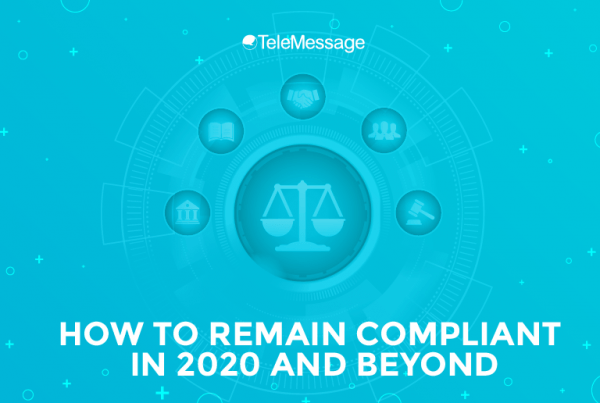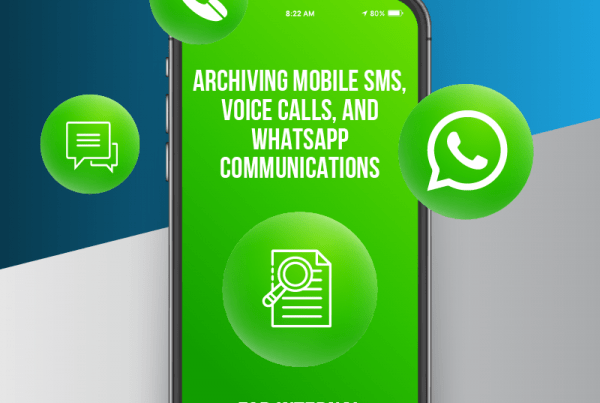Call monitoring is an essential tool that financial organizations should take advantage of not only to stay compliant, but also to build a better relationship with their clients. By monitoring phone calls, companies can uncover information that can improve their service relationships, help retain their customers, and drive sales growth.
At bare minimum, call monitoring is crucial to comply with the various existing regulatory requirements. Many financial institutions, though, are still struggling to comply, especially since some regulatory bodies continue to issue ever-more stringent requirements for call monitoring.
The strategic perspective, however, is to grasp the commercial value in monitoring calls. Read on as we detail below why and how call monitoring can be a key tool for financial organizations.
Reviewing Employee Performance
Monitoring and recording your employees’ interactions with your clients, users, prospects, or suppliers would help in letting you know your staff’s performance. Both employer and employee will have to understand that monitoring phone calls isn’t meant to spot anything negative in how a call is handled, but to develop the team’s skills in the long run. Call monitoring is a collaborative task between both parties.
Employers can review the monitored calls and if they notice some employees excelling while the others have mediocre performances, use anything they can glean from the conversation to formulate strategies on how to improve their organization’s operations. The recorded calls of an employee who excelled can be used by the organization for training purposes while those of a sub-par employee can be used to track any issues evident in past conversations.
Understanding Your Client’s Experience
Being able to monitor calls grants you an intimate understanding of your clients’ experiences with your organization’s services. Monitoring and recording calls lets you understand what your clients go through as either your client or prospect, their frustrations with your services, and their requirements to have them stay with you as customers.
Financial organizations that monitor and record phone calls would be able to understand their clients more than just having to rely on statistics to determine the superiority of their services.
Compliance with Regulatory Requirements
Returning to regulatory compliance, financial organizations will need to prioritize making their call recording measures better to keep them from errors that would prevent them from recording their calls. Such errors include not storing recorded phone calls with the highest data protection principles, as stipulated in the General Data Protection Regulation and Data Protection Act of 2018.
Non-compliance with the various regulatory requirements results in hefty fines. Non-compliance with the GDPR can result in penalties reaching up to €20 million or around four percent of a firm’s annual revenue. Some regulatory fines in the United States cost about $10,000 per infraction, a cost which could be effectively circumvented by implementing the compliance solutions such as an enterprise-level mobile recording platform.
Another reason for investing in a call recording and monitoring solution is to ensure quality recordings of phone calls which otherwise cannot be achieved through legacy system. Under MiFID II, for instance, an organization will be deemed uncompliant if it actively refuses to record their calls and if their recordings are of poor quality, inaccurate, and incomplete. An institution’s efforts won’t be recognized even if they spent considerable amounts of money investing in a solution that would let them record phone calls only to suffer some glitches.
In a financial organization where hundreds to thousands of on-site and field employees use their mobile phones to call their colleagues and clients, not having a reliable call recording solution that can capture conversations in the highest quality possible and under any circumstances could easily put the business in grave dispute with the regulatory standards.
The TeleMessage Mobile Archiver effectively addresses compliance, regulatory, eDiscovery response requirements and reduces in the financial sector by complying with MiFID II, SEC, Dodd-Frank Act, HIPAA, SOX, GLPA and those put into effect by the US Federal Courts. TeleMessage captures and records mobile content, including SMS, MMS, voice calls, social media, and WhatsApp Chats from corporate or BYOD mobile phones. Messages are securely and reliably retained within TeleMessage servers or forwarded to an archiving data storage vendor of your choice.
Our mobile archiving products securely capture content from mobile carriers and mobile devices for a variety of ownership models (BYOD, CYOD, and employer-issued). With our multiple archiving methods, you can always find the right tools or blend for your text message archiving and voice call recording requirements:
TeleMessage offers cross-carrier and international mobile text and calls archiving for Corporate and BYOD phones. Visit our website today at www.telemessage.com to learn more about how we can help your organization stay compliant with the privacy implications of different text archiving and call recording regulations.





